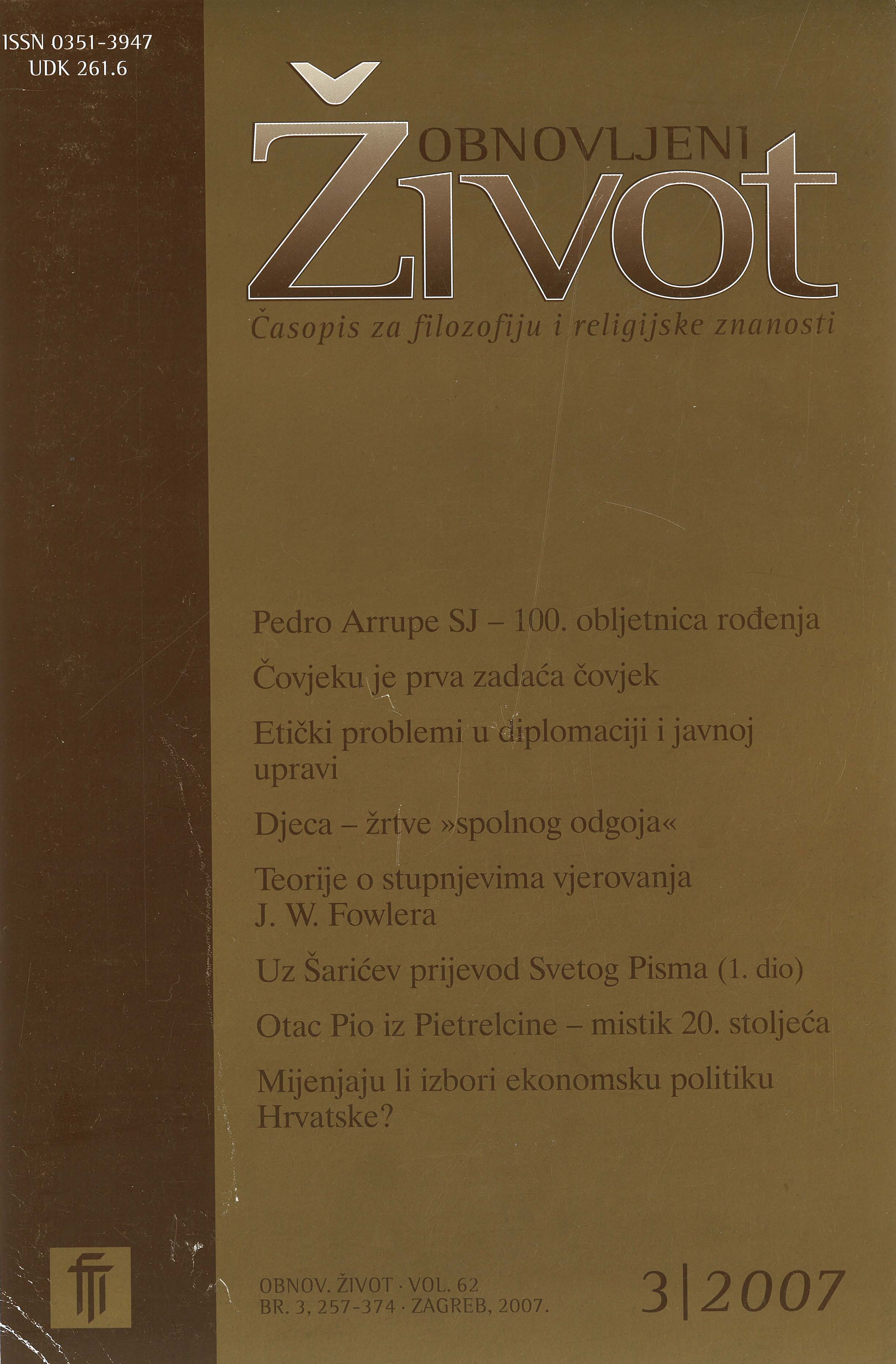A Realistic Theory of International Relations and Fundamental Ethical Problems in Diplomacy and Public Administration
Abstract
Were we to accept the thesis that a realistic theory provides an acceptable response to the question of what sets international relations in motion, we must necessarily con- front the fact that the concept of the moral principle therein is often subordinated to the supreme value of »the national interest«. Realists are regularly consequentialists in relation to the ethical paradigm, while idealists are as a rule adhere to the principle of ethical duty. The most heated debates occurring between idealists and realists on the issue of international relations tend to develop precisely in the area of morals. By utilizing the issue of papal diplomacy compared to other civic models as an example, and also the actions of Socrates and Pilate, with which we are all familiar (the former being an idealist, and the latter a classic realist), this article endeavours to admonish of the basic ethical problems of diplomacy and public administration and to outline the main points in the debate between idealists and realists regarding these issues. Finally the article suggests a uniform view which, despite their great differences, both sides may still be able to agree upon.
Downloads
Published
Issue
Section
License
Jednom prihvaćeni članak obvezuje autora da ga ne smije objaviti drugdje bez dozvole uredništva, a i tada samo uz bilješku da je objavljen prvi put u Obnovljenom životu. Uredništvo će obavijestiti autora o prihvaćanju ili neprihvaćanju članka za objavljivanje.
Članci objavljeni u časopisu se, uz prikladno navođenje izvora, smiju besplatno koristiti u obrazovne i druge nekomercijalne svrhe.


